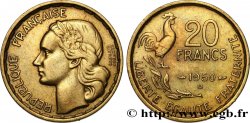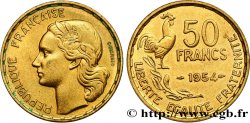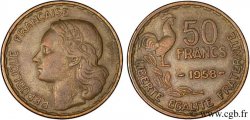Live auction - fme_447734 - IV REPUBLIC Plaquette, Fédération des Anciens de la Rhénanie
Чтобы принять участие в торгах, вы должны войти в систему и стать подтвержденным участником аукциона. Войдите, чтобы сделать ставку. Ваш аккаунт будет подтвержден в течение 48 часов. Не ждите до закрытия торгов, чтобы зарегистрироваться.Сделав ставку на данный товар, вы вступаете в юридическое соглашение на покупку выбранного товара и нажатием кнопки «Сделать ставку» подтверждаете принятие вами условий интернет-аукционов cgb.fr.
Ставка может бить сделана только в полном эквиваленте евро. Торги закроются согласно времени, указанному в описании товара, все ставки, сделанные после закрытия торгов, учитываться не будут. Не следует откладывать предложение вашей ставки до последнего момента, так как система может не успеть обработать вашу заявку, и ваша ставка не будет принята. Более детальную информацию вы найдёте здесь: FAQ по интернет-аукционам.
Все ставки победителей подлежат комиссии 18%.
Все ставки победителей подлежат комиссии 18%.
Тип Plaquette, Fédération des Anciens de la Rhénanie
Дата: 1950
Монетный двор / Город: Allemagne, Rhénanie
Металл: bronze
Диаметр: 86,5 mm
Ориентация осей монеты: 12 h.
Гравер DELANNOY Maurice (1885-1972)
Вес: 207 g.
Век: lisse + Triangle BRONZE
Пуансон: Triangle BRONZE
Комментарии о состоянии
Superbe plaquette avec une patine brune, plus sombre autour des reliefs
Лицевая сторона
Аверс: легенда: KEHL / MAYENCE / COBLENCE // 1918 - 1930.
Аверс: описание: Femme casquée et armée. Signé : DELANNOY.
Обратная сторона
Реверс: легенда: FÉDÉRATION DES / ANCIENS DE LA / RHÉNANIE ET / DE LA RUHR // A / ROBERT HOLVECK / 1950.
Реверс: Описание: Légende en 4 lignes au-dessus d’un médaillon et en 3 lignes à l’exergue.
Комментарий
Dimensions : 86,5*56,5 mm.
Plaquette décernée à Robert Holveck en 1950.
En mars 1920 débute un soulèvement par les communistes dans la région de la Ruhr en réponse au putsch de Kapp. Ce dernier prend fin lors de l'intervention de la Reichswehr, armée de la république de Weimar. En mars 1921, les troupes françaises et belges occupèrent la région de Duisbourg, une partie de la Rhénanie démilitarisée en vertu du traité de Versailles. En janvier 1923, le reste de la région fut occupé en représailles des retards de paiement de l’Allemagne concernant les énormes réparations exigées lors du traité de Versailles. Le gouvernement allemand de la jeune république de Weimar riposta par la « résistance passive », le fameux Ruhrkampf. Les mineurs et les cheminots refusèrent d’obéir aux ordres des forces occupantes, paralysant la production et les transports. Mais les conséquences financières furent désastreuses et contribuèrent largement à l’hyperinflation qui ruina complètement les finances publiques allemandes et traumatisèrent durablement les Allemands en 1923. L’appel à la résistance passive fut donc levé par le gouvernement de Gustav Stresemann en septembre 1923. La fin de la résistance passive permit au gouvernement allemand de négocier le plan Dawes et d’obtenir ainsi le retrait des troupes étrangères en 1925. Par la suite, les incidents et actes de sabotage perpétrés lors de l’occupation de la Ruhr seront largement exagérés et récupérés par la propagande nazie.
Plaquette décernée à Robert Holveck en 1950.
En mars 1920 débute un soulèvement par les communistes dans la région de la Ruhr en réponse au putsch de Kapp. Ce dernier prend fin lors de l'intervention de la Reichswehr, armée de la république de Weimar. En mars 1921, les troupes françaises et belges occupèrent la région de Duisbourg, une partie de la Rhénanie démilitarisée en vertu du traité de Versailles. En janvier 1923, le reste de la région fut occupé en représailles des retards de paiement de l’Allemagne concernant les énormes réparations exigées lors du traité de Versailles. Le gouvernement allemand de la jeune république de Weimar riposta par la « résistance passive », le fameux Ruhrkampf. Les mineurs et les cheminots refusèrent d’obéir aux ordres des forces occupantes, paralysant la production et les transports. Mais les conséquences financières furent désastreuses et contribuèrent largement à l’hyperinflation qui ruina complètement les finances publiques allemandes et traumatisèrent durablement les Allemands en 1923. L’appel à la résistance passive fut donc levé par le gouvernement de Gustav Stresemann en septembre 1923. La fin de la résistance passive permit au gouvernement allemand de négocier le plan Dawes et d’obtenir ainsi le retrait des troupes étrangères en 1925. Par la suite, les incidents et actes de sabotage perpétrés lors de l’occupation de la Ruhr seront largement exagérés et récupérés par la propagande nazie.








 День закрытия торгов
День закрытия торгов  Cообщить об ошибке
Cообщить об ошибке Распечатать страницу
Распечатать страницу Отправить мой выбор
Отправить мой выбор Задать вопрос
Задать вопрос Consign / sell
Consign / sell
 Информация
Информация



